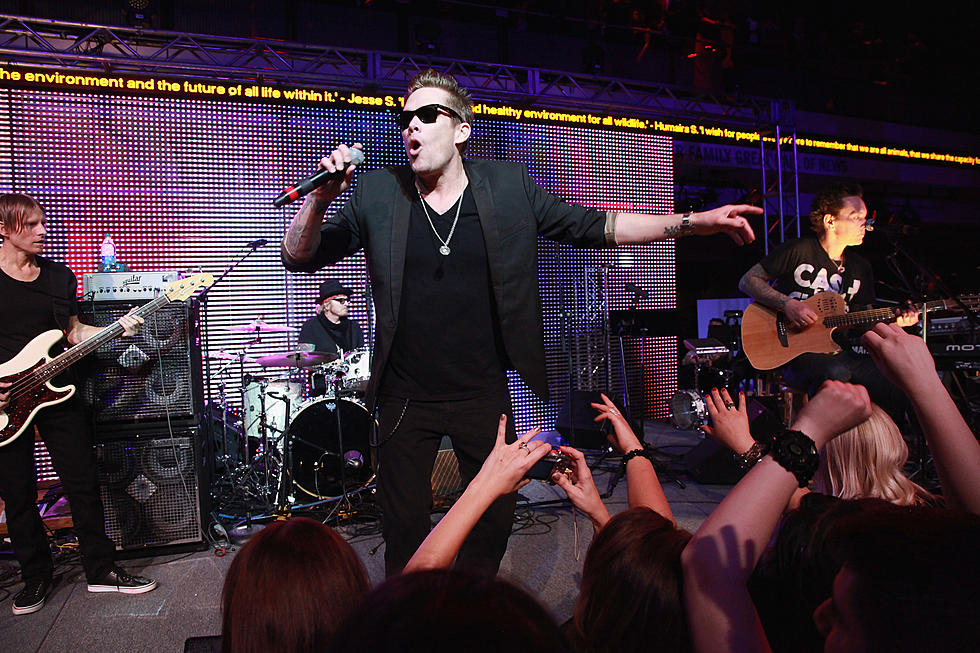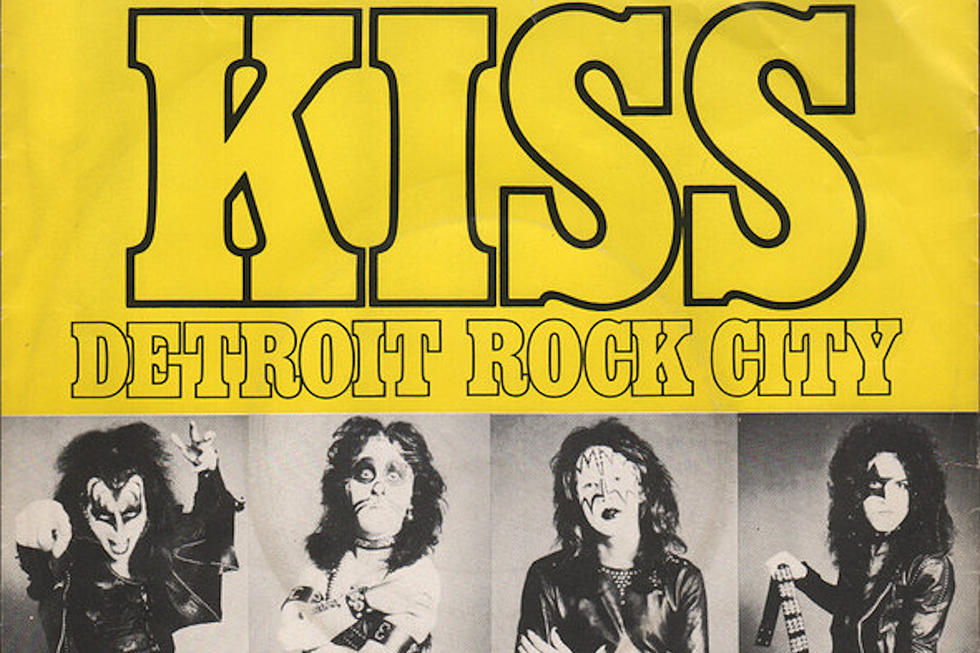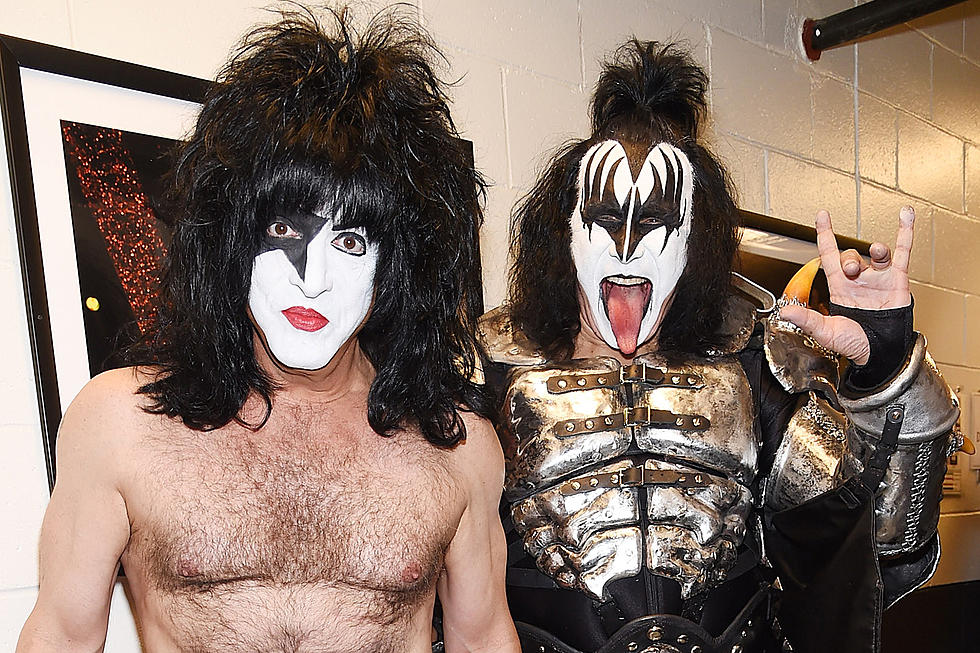
Why Every Bob Ezrin Album With Kiss Is So Different
At three crucial points in their career, Kiss recruited producer Bob Ezrin to help them out of creative or commercial jams. He twice helped deliver exactly the albums they needed to take a step forward, but the third collaboration has gone down as one of the biggest missteps in rock history.
We take a look at all three Bob Ezrin-produced Kiss albums below, as well as the story of one that got away.
Destroyer (1976)
At a chance 1975 meeting at a Toronto television studio, Ezrin asked Kiss frontman Paul Stanley if he was happy with the sound of the band's first three albums. "He said, 'Yeah, why?'" Ezrin told Rolling Stone. "And I said, 'Well, you know, if at any point you decide you're not, I would love to work with you guys.'"
Despite Stanley's self-described "cocky" reply, the band was not happy with the low-budget sounds of Kiss, Hotter Than Hell and Dressed to Kill, so the following year Kiss hired Ezrin to produce their fourth album. After realizing the members weren't fluent in basic music language and concepts, the producer became a boot-camp instructor, using chalkboards and a coach's whistle to whip them into shape.
The painstakingly crafted Destroyer was released on March 15, 1976. Although some old-school fans balked at the ornate production, the album did help Kiss reach a wider audience - particularly when the B-Side ballad "Beth" became a surprise smash - and remains the standard each new Kiss album is measured against. "We went in there kind of green and came out a lot smarter for it," Stanley said in Kiss: Behind the Mask. "It stands the test of time."
Read More: Revisiting Kiss' Masterpiece Destroyer
Music From 'The Elder' (1981)
Kiss went on a wild roller-coaster ride in the five years after Destroyer, and much of that time was spent as one of the most popular bands on the planet. But personal and creative differences, overexposure and a continued shift away from their original hard-rock sound swiftly eroded their fan base. The sales of 1980's Unmasked were so poor that the band didn't even attempt a U.S. tour, and founding drummer Peter Criss soon quit.
It was decided that a back-to-basics album was in order and Ezrin was the best candidate to lead Kiss there. Perhaps inspired by his role on Pink Floyd's acclaimed 1979 concept album The Wall, the producer instead helped steer the band into recording its own ambitious work of "serious" art. The result was a career-torpedoing laughingstock: the soundtrack to a medieval-themed adventure movie that didn't exist, complete with woodwinds, spoken dialogue and a couple of songs that would have fit better on a Broadway stage.
"I had a drug problem during the making of that record that really contributed a lot to my misjudgment," Ezrin confessed in Kiss: Behind the Music. In a separate interview with Kiss Concert History Online, he said, "In hindsight, [guitarist] Ace [Frehley] was absolutely right in his feeling that all this concept and drama stuff was bullshit and that we should just get back to rock 'n' roll."
"The Elder is probably the biggest misstep of our whole musical career," Stanley summarized in Kiss: Behind the Mask. "It was pompous, contrived, self-important and fat." Still, Kiss recovered. Following the departure of Frehley, Simmons and Stanley made a creative comeback with 1982's Creatures of the Night, then removed their makeup and managed to successfully adapt to the '80s with a string of MTV hits and platinum albums.
Read More: How Music From 'The Elder' Became Kiss' Most Controversial LP
Revenge (1992)
Kiss' '80s rebirth began to go astray much the same way the band fell apart at the end of the '70s, with the group following mainstream trends too closely on 1987's keyboard-heavy Crazy Nights. The self-produced Hot in the Shade from 1989 was a step in the right direction, but the record lacked focus.
In 1991, Kiss and Ezrin worked together on the song "God Gave Rock 'N' Roll to You II" for the Bill & Ted's Bogus Journey soundtrack. Ezrin later told Eddie Trunk that the experience "reminded us that we actually love each other, The Elder aside, and that we should be working together, we should be in the studio together." Although the November 1991 death of longtime drummer Eric Carr cast a shadow on the recordings, Ezrin helped the band deliver its tightest, heaviest and most consistent album since Creatures of the Night. "Maybe what happened with Revenge was that we didn't deny who we are," Stanley hypothesized in Kiss: Behind the Mask. "We embraced it, but at the same time made sure we weren't just recreating it."
Although Revenge didn't fully reignite Kiss' commercial fortunes, the album received some of the best reviews of their career and reconnected with their most hardcore fans, who'd be even happier a few years later when Simmons and Stanley reunited in full makeup with fellow founding members Criss and Frehley.
Read More: A Look Back at Kiss' Best Non-Makeup LP, Revenge
Psycho Circus (1998): The One That Got Away
If Paul Stanley had his way, Ezrin would have also captained Kiss' 1998 attempt to record a reunion album with the original lineup. But scheduling conflicts kept Ezrin from producing, although he did cowrite and play piano on Criss' showcase ballad "I Finally Found My Way."
Stanley said he did his best to channel Ezrin on the album's title track. "When I was in the studio working, most of the time all I was asking was, 'What would Bob do?'" he explained in Kiss: Behind the Mask. "When I finished it and played it in my car for Bob, he had this big smile on his face. When it was done, I said to him, 'All I was trying to figure out is what you would have done.' He smiled and said, 'You did it.'"
Read More: How Kiss' Original Lineup (Sorta) Reunited for Psycho Circus
Kiss Albums Ranked
More From 92.9 The Lake








